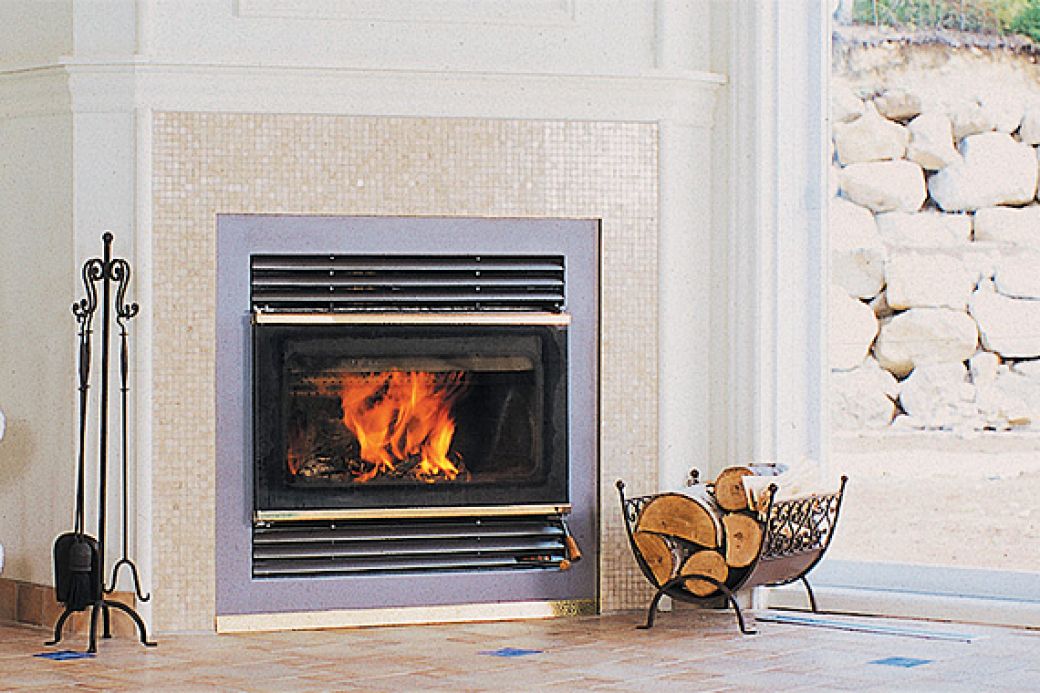A traditional wood-burning fireplace adds warmth and romantic ambiance to a home’s interior. But most are energy hogs, converting only 15% of wood’s energy into useful heat.
Fortunately, new energy-efficient fireplace designs are helping wood-burning fireplaces achieve efficiency ratings of 75% or more. Fireplace inserts and gas fireplaces are even more efficient.
Energy-Efficient Wood-Burning Fireplaces
If you’re adding a wood-burning fireplace, avoid the standard design, which sends too much of your home’s heated air up the chimney. Consider these energy-efficient wood-burning fireplaces:
| Type | Features |
| Rumford fireplaces | Feature a shallow box design that reflects more heat into the room. |
| EPA-qualified fireplaces | Good performance and high energy-efficiency ratings. Designed to pull in outdoor air for combustion, and circulate room air around the firebox to extract as much useable heat as possible. Produce much less air pollution than standard fireplaces. |
| Fireplace inserts | Sealed metal boxes designed to fit inside masonry fireplace openings. Use outside air for combustion, and are designed to circulate and warm inside air. Inserts burn a variety of biomass fuels, including wood and pellets. Some units are rated at 80% efficiency. |
If you already own a standard wood-burning fireplace, make it more energy efficient by installing glass doors. Glass doors limit the amount of room air that is sucked into the fireplace during combustion.
Glass doors work particularly well when a fire is burning down for the night and you must leave the damper open. Otherwise, glass doors block radiant heat; keep them open when your fire is blazing. Expect to pay $300 to $500 for glass doors, installed.
In California, glass or solid metal doors are required on all fireplace openings.
Related: Save Energy with a Wood-Burning Fireplace Insert Installation
Energy-Efficient Gas Fireplaces
If you want the convenience and low maintenance of an energy-efficient gas fireplace, you have two good options:
| Type | Features |
| Direct-vent gas fireplaces | Use two-way vents that supply outside air for combustion. Energy-efficiency ratings as high as 77%, which is better than top gas fireplaces connected to a chimney. |
| Vent-free gas fireplaces | Even more energy-efficient because they don’t send exhaust outside. But release a lot of moisture into inside indoor air. |
Related:
